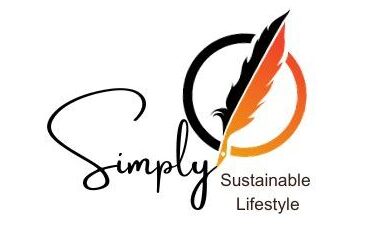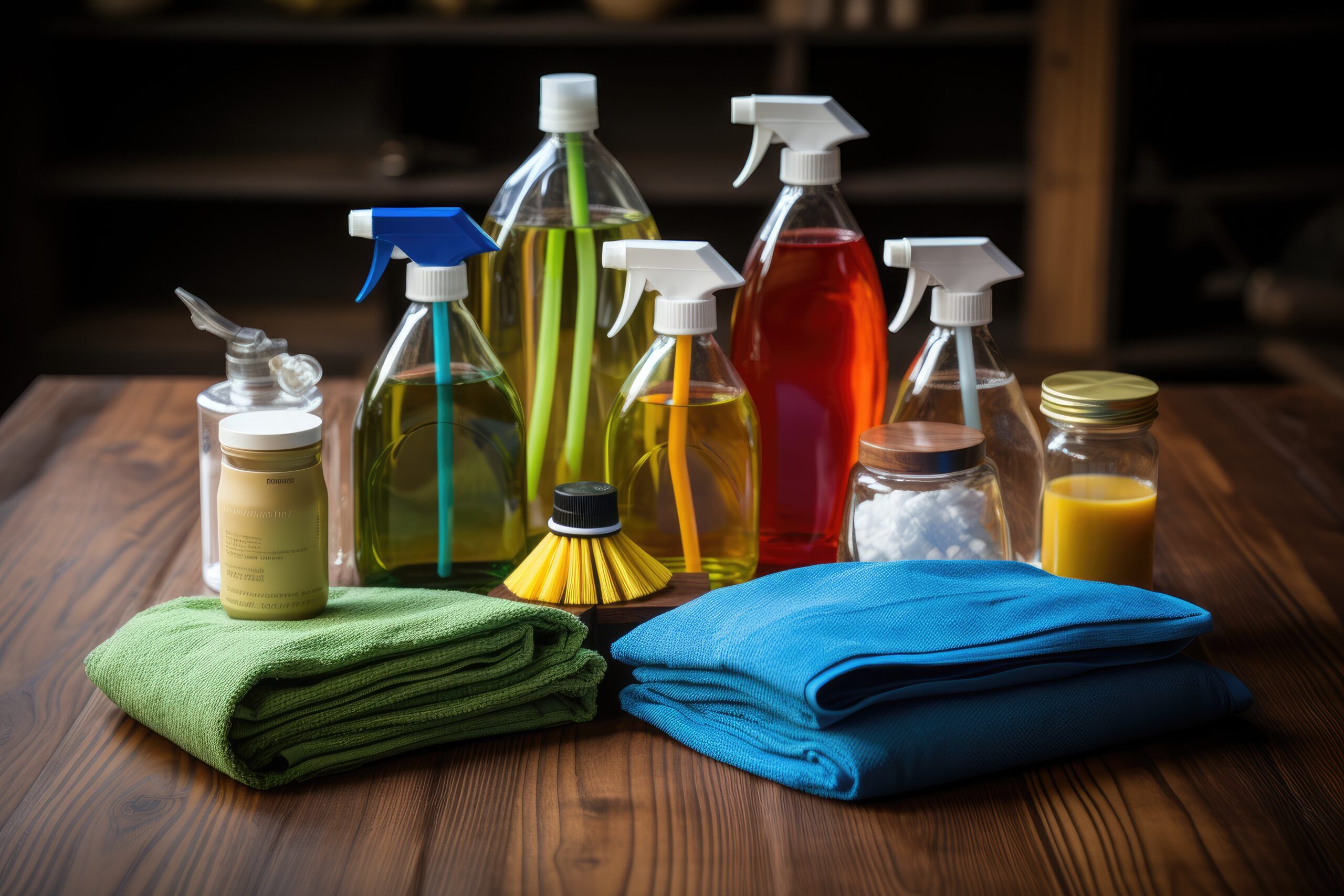A Comprehensive Review of Basic DIY Cleaning Products for the Home
Maintaining a clean and organized home doesn’t always necessitate costly commercial cleaning products. This review aims to explore the efficiency and adaptability of basic DIY cleaning products commonly available in households, providing budget-friendly and eco-friendly alternatives.

Our homes serve as personal havens where we unwind, forge memories, and seek solace. Unfortunately, the very products designed to purify our living spaces sometimes introduce harmful chemicals. We’ll delve into the efficacy and versatility of fundamental DIY cleaning products and present them as a sustainable and eco-friendly choice for fostering a healthier home.
Once, uncomplicated ingredients like vinegar and baking soda formed the bedrock of household cleaning. However, the influence of marketing, time constraints, and corporate messaging led to the perception that sophisticated chemical solutions were superior. Consequently, we overlooked the potency of these simple ingredients in maintaining a clean and healthy home.
Now, in this era we are witnessing a resurgence to our roots, there’s a growing movement to reacquaint ourselves with traditional cleaning methods. Homemade solutions are being rediscovered, aligning with the environmentally conscious ethos advocated by the Simply Sustainable Lifestyle. These alternatives prove to be effective and resonate well with a sustainability-focused lifestyle.
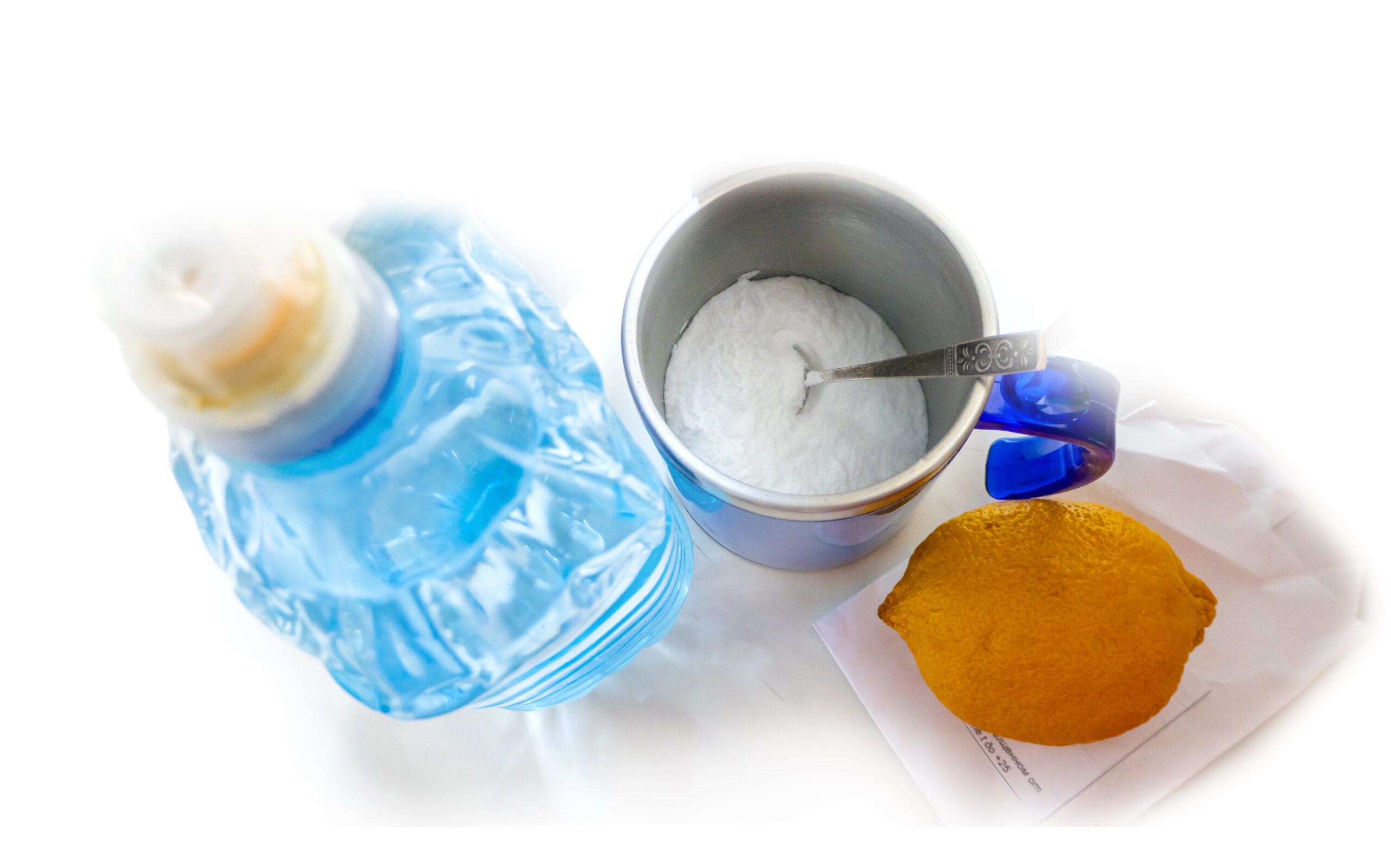
The Benefits of DIY Cleaning Supplies:
- Cost-effective: Creating your own cleaning products using ingredients like vinegar, baking soda, and rubbing alcohol is a budget-friendly way to maintain a pristine home.
- Safe for skin allergy sufferers: Unlike harsh store-bought cleaners, natural DIY solutions made from ingredients like vinegar and baking soda are gentle on the skin, making them safe for those with skin allergies.
- Safe for kids and pets: Natural products like vinegar and baking soda, commonly found in your pantry, pose no harm if accidentally consumed. This allows for safer involvement of children in household tasks.
- Minimized clutter: DIY cleaning products minimize the number of products cluttering your cupboards, offering simplicity and ease of use compared to the overwhelming options in store aisles.
- Health benefits: DIY cleaning products reduce the number of harmful chemicals in your home, fostering a healthier living environment.
- Better cleaning success: Homemade solutions, such as vinegar’s natural disinfectant properties, can be as effective as or even more effective than store-bought alternatives.
- Environmentally friendly: By making your own cleaning products, you contribute to reducing plastic waste generated by commercial cleaning items.
- Customizable: Tailor your cleaning products to your preferences, such as adding essential oils for a pleasant scent in your all-purpose cleaner.
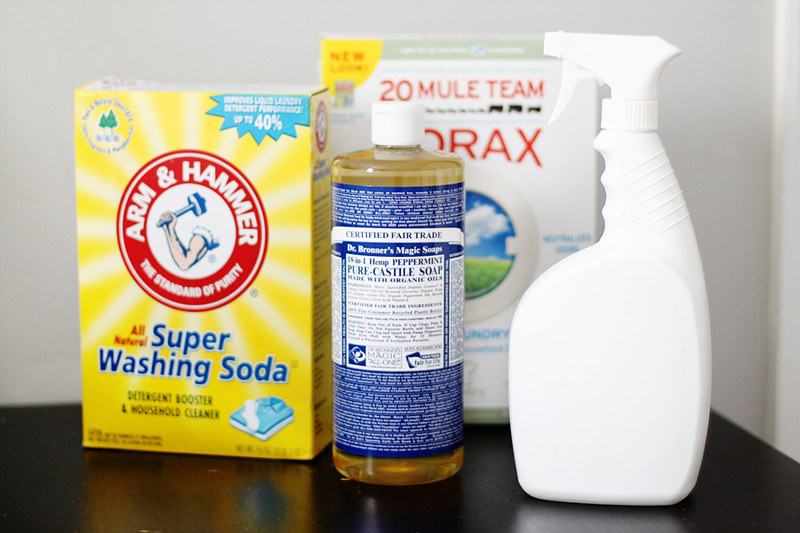
Common DIY Cleaning Ingredients:
- Baking Soda: A mild abrasive effective for gentle scrubbing and odor removal.
- Borax: A powerful mineral for tackling mold, and mildew, and boosting laundry detergent.
- Castile Soap: A plant-based soap suitable for general cleaning.
- Hydrogen Peroxide: A versatile cleaning agent known for its strong oxidizing properties, effectively disinfecting surfaces and removing stains.
- Essential Oils: Add fragrance and antibacterial properties to cleaning solutions.
- Lemons and Lemon Juice: Natural bleach and degreaser for various surfaces.
- Olive Oil: Ideal for furniture polish and removing sticky residues.
- Rubbing Alcohol: Effective for cleaning glass surfaces and stain removal.
- Salt: A natural abrasive making it effective for scrubbing and removing stains on various surfaces.
- Toothpaste: Surprisingly effective for household cleaning tasks, especially stain removal.
- Washing Soda: Washing soda, is strongly alkaline. Effective for removing various stains.
- Water: The universal solvent essential for diluting cleaning solutions and general cleaning.
- White Vinegar: A versatile and powerful cleaner with acidic properties.
1. Baking Soda:
- Applications: It can be used to clean sinks, ovens, and even as a deodorizer for carpets and refrigerators.
- Effectiveness: Baking soda is a gentle abrasive that works well for scrubbing surfaces without scratching.
- Pros: Non-toxic, inexpensive, and has multiple uses.
- Cons: Might not be as effective for heavy-duty cleaning tasks.

2. Borax:
- Effectiveness: Borax, a naturally occurring mineral, is a powerful cleaner and deodorizer with antibacterial and antifungal properties.
- Applictions: Excellent for tackling mold and mildew, as well as for boosting the cleaning power of laundry detergent. It can also be used to scrub and deodorize surfaces.
- Pros: Versatile, effective against pests, and has a long shelf life.
- Cons: While generally safe for most cleaning purposes, it should be used with caution around pets and should not be ingested.
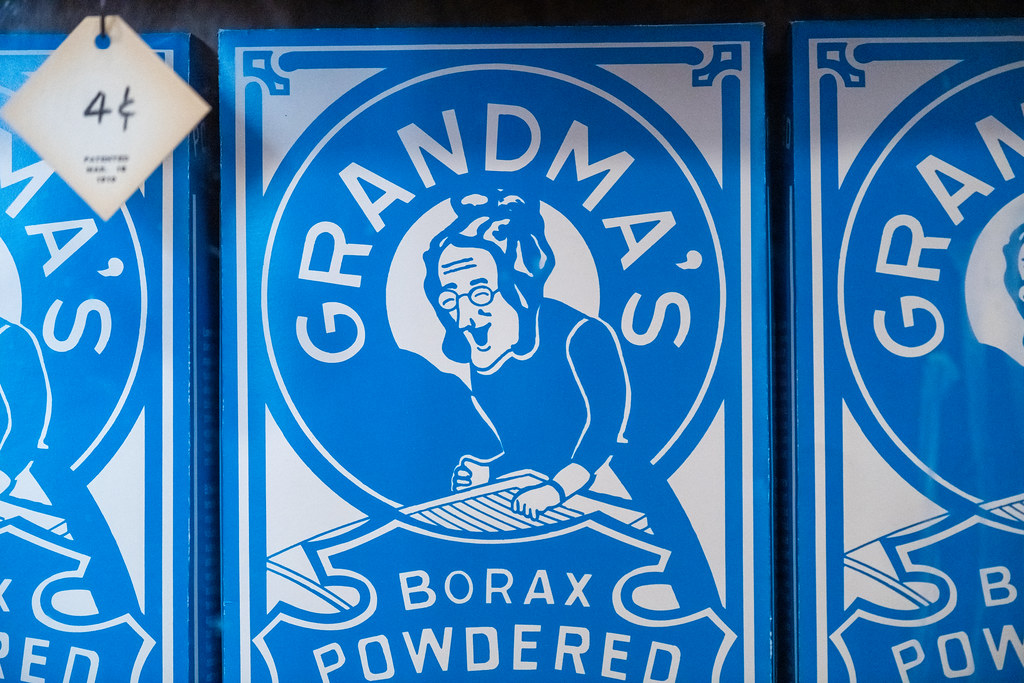
3. Castile Soap
- Effectiveness: Castile soap is a plant-based soap that is effective for general cleaning.
- Applications: Great for floors, countertops, and can be diluted for use on various surfaces.
- Pros: Biodegradable, versatile, and comes in various scents.
- Cons: Can be more expensive than other DIY alternatives.

4. Essential Oils
- Effectiveness: Essential oils add natural fragrance and antibacterial properties to DIY household cleaning products.
- Applications: They can be incorporated into various cleaning solutions for pleasant scents and enhanced cleaning power.
- Pros: Bring aromatherapeutic benefits, contribute to a pleasing fragrance, and have additional antibacterial properties.
- Cons: Some individuals may have sensitivities to specific essential oils, so it’s advisable to test in small amounts initially.
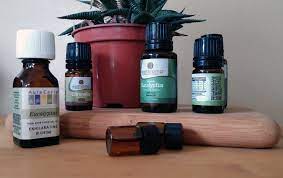
5. Hydrogen Peroxide:
- Effectiveness: Hydrogen peroxide is a versatile cleaner with strong oxidizing properties, effective in disinfecting surfaces and removing stains.
- Applications: It can be used as a DIY cleaner for kitchen and bathroom surfaces, as well as a stain remover for fabrics.
- Pros: Acts as a disinfectant, versatile in various cleaning applications, and readily available.
- Cons: Should be used with caution on colored fabrics, as it may cause fading. Additionally, it may lose potency when exposed to light over time.

6. Lemon and Lime Juice:
- Effectiveness: The natural acidity of lemon makes it effective against grease and stains while leaving a refreshing scent.
- Applications: Ideal for cleaning cutting boards, microwave interiors, and as a natural air freshener.
- Pros: Pleasant fragrance, natural antibacterial properties.
- Cons: May not be suitable for all surfaces due to its acidity.

7. Olive Oil:
- Effectiveness: Olive oil can be used as a base for furniture polish and for removing sticky residues.
- Applications: Perfect for polishing wooden furniture and stainless steel appliances.
- Pros: Natural, adds shine, and conditions surfaces.
- Cons: Should be used sparingly to avoid a greasy residue.

8. Rubbing Alcohol:
- Effectiveness: Rubbing alcohol is a versatile cleaner with disinfectant properties, effective for sanitizing surfaces and removing stains.
- Applications: It can be used for cleaning glass surfaces, disinfecting commonly touched areas, and as a stain remover for fabrics.
- Pros: Acts as a disinfectant, evaporates quickly, and suitable for various surfaces.
- Cons: Should be used in well-ventilated areas, and may not be suitable for certain plastics or delicate materials.

9. Salt:
- Effectiveness: Salt is a natural abrasive and disinfectant, making it useful for scouring and cleaning surfaces.
- Applications: It works well for scrubbing pots and pans, cleaning cutting boards, and removing stains. When mixed with warm water, it can be an effective mouthwash and deodorizer.
- Pros: Inexpensive, readily available, and adds a scrubbing element to DIY cleaning solutions.
- Cons: Should be used with caution on delicate surfaces to avoid scratches.

10. Toothpaste:
- Effectiveness: Toothpaste, with its mild abrasives and cleaning agents, is surprisingly effective for various household cleaning tasks.
- Applications: Ideal for removing stains on tiles, grout, and silverware. It can also be used to polish jewelry.
- Pros: Readily available, affordable, and can provide a sparkling finish.
- Cons: Some colored toothpaste may stain surfaces, so it’s recommended to use white toothpaste for cleaning.

11. Washing Soda:
- Applications: They can be incorporated into various cleaning solutions for pleasant scents and enhanced cleaning power.
- Effectiveness: Washing soda is a powerful cleaner known for its ability to tackle tough stains and grime effectively.
- Applications: Ideal for boosting laundry detergent, cleaning heavily soiled fabrics, and as a general-purpose cleaner for various surfaces.
- Pros: Strong cleaning properties, versatile, and cost-effective.
- Cons: Use with caution on delicate surfaces, as it is highly alkaline and may be too abrasive for certain materials.
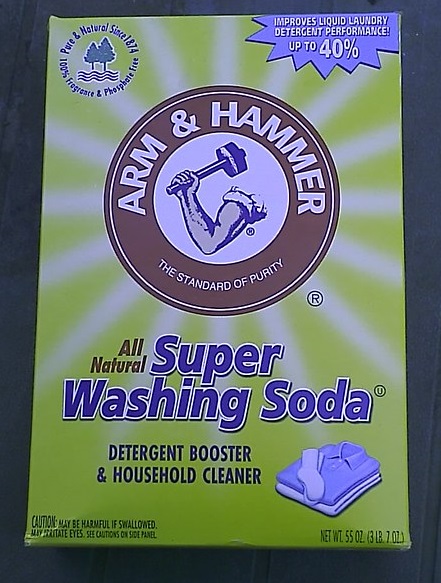
12. Water:
- Effectiveness: Water is the universal solvent and is essential for diluting cleaning solutions, making them safe and effective.
- Applications: Water is the base for many DIY cleaning mixtures, helping to dilute concentrated ingredients like vinegar, soap, or essential oils. It’s crucial for mopping floors, wiping surfaces, and general cleaning.
- Pros: Readily available, cost-effective, and safe for most surfaces.
- Cons: None; it’s a fundamental component of DIY cleaning solutions.

13. White Vinegar:
- Effectiveness: White vinegar is a versatile and powerful cleaner due to its acidic nature, making it effective against grease, stains, and mineral deposits.
- Applications: It works well as a glass cleaner, and fabric softener, and can even unclog drains when combined with baking soda.
- Pros: Affordable, readily available, and safe for most surfaces.
- Cons: The smell can be overpowering initially, but it dissipates as it dries.

Basic DIY cleaning products for the home can be highly effective, affordable, and environmentally friendly. The key lies in understanding their properties and using them appropriately for different cleaning tasks. Whether you’re looking to save money, reduce your environmental footprint, or simply prefer natural alternatives, incorporating these basic DIY cleaning products into your routine can contribute to a cleaner and healthier home.
Explore this sampling of DIY cleaning product recipes as a starting point for your home cleaning endeavors. Feel free to customize and refine these recipes based on your unique cleaning requirements and preferences.
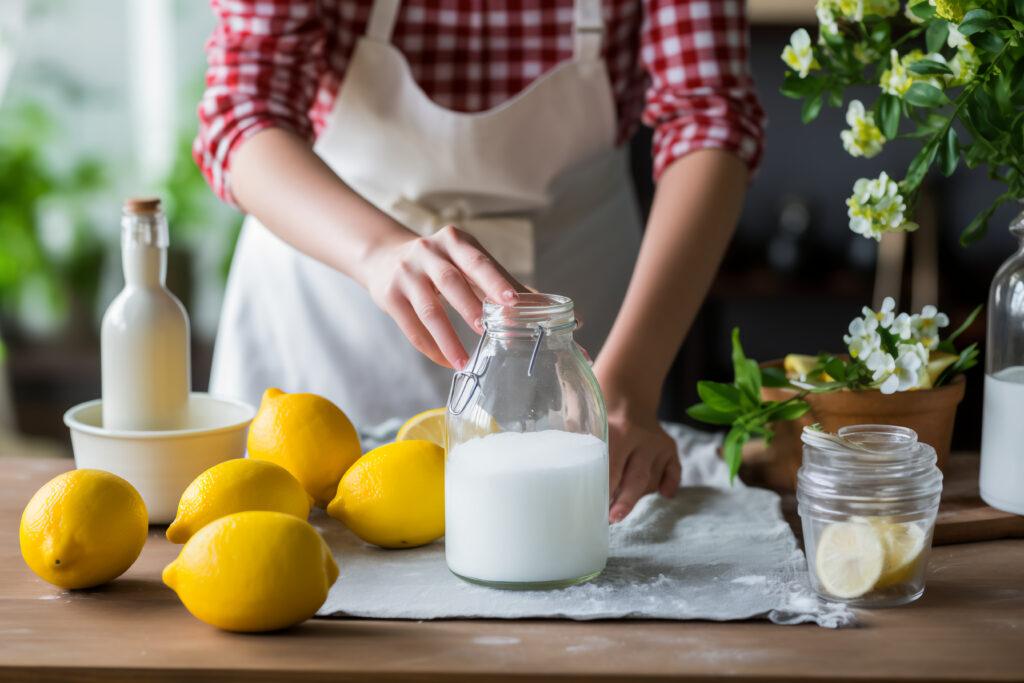
Homemade Citrus Dish Soap:
- Ingredients: 1 cup castile soap (unscented or citrus-scented), 1 tablespoon washing soda,1 cup distilled white vinegar, 20 drops of essential oil (e.g., lemon, orange, or tea tree for added scent and antibacterial properties), 2 cups water
- Instructions: Combine castile soap and washing soda, slowly add distilled white vinegar, stirring gently to avoid excessive foaming, and incorporate the essential oil of your choice, gradually add water and stir until all the ingredients are well combined. Pour the mixture into an empty, clean dish soap bottle.
All-Purpose Cleaner:
- Ingredients: 1 cup water, 1 cup white vinegar, 10 drops of essential oil.
- Instructions: Combine ingredients in a spray bottle and shake well before use.
Glass Cleaner:
- Ingredients: 1/4 cup rubbing alcohol, 1/4 cup white vinegar, 1 tablespoon cornstarch, 2 cups warm water.
- Instructions: Mix the ingredients in a spray bottle, shaking well before use.
Furniture Polish:
- Ingredients: 1/4 cup olive oil, 1/4 cup white vinegar, 10 drops of essential oil.
- Instructions: Blend the ingredients in a spray bottle and shake well before use.
Toilet Bowl Cleaner:
- Ingredients: 1/2 cup baking soda, 1/4 cup white vinegar.
- Instructions: Combine in the toilet bowl, let it sit for 10 minutes, scrub with a toilet brush, and flush.
Carpet Deodorizer:
- Ingredients: 1 cup baking soda, 10-15 drops of essential oil.
- Instructions: Mix in a jar, then sprinkle on the carpet. Allow it to sit for 15-20 minutes before vacuuming.
Stovetop Cleaner:
- Ingredients: 1/4 cup baking soda, 1 tablespoon dish soap, water (enough to make a paste).
- Instructions: Create a paste by combining the ingredients. Apply to the stovetop, let sit for 10-15 minutes, scrub with a sponge, and rinse with water.
Dishwasher Detergent:
- Ingredients: 1 cup washing soda, 1 cup borax, 1/2 cup kosher salt, 1/2 cup citric acid.
- Instructions: Mix in a jar and use 1 tablespoon per load.
Laundry Detergent:
- Ingredients: 1 cup washing soda, 1 cup borax, 1 bar grated castile soap.
- Instructions: Combine in a jar and use 1-2 tablespoons per load.
Incorporating basic DIY cleaning products into your cleaning routine can result in a cleaner, healthier, and environmentally friendly home. By understanding the properties and applications of these common household items, you can make informed choices that align with your desire for a safe and sustainable living space.
We use Affiliate Links to sustain Simply Sustainable Lifestyle’s writing and research. We curate goods and services that enrich the simple and sustainable lifestyle experience. As an Amazon Associate I may earn from qualified purchases
Your feedback on products and services, whether great or falling short, is invaluable in aligning recommendations with the blog’s focus.
We’d love to hear from you about this article or our website. Please make comments below and take a minute to sign up to be on our email list. We will periodically send you notifications of new blogs you won’t want to miss.
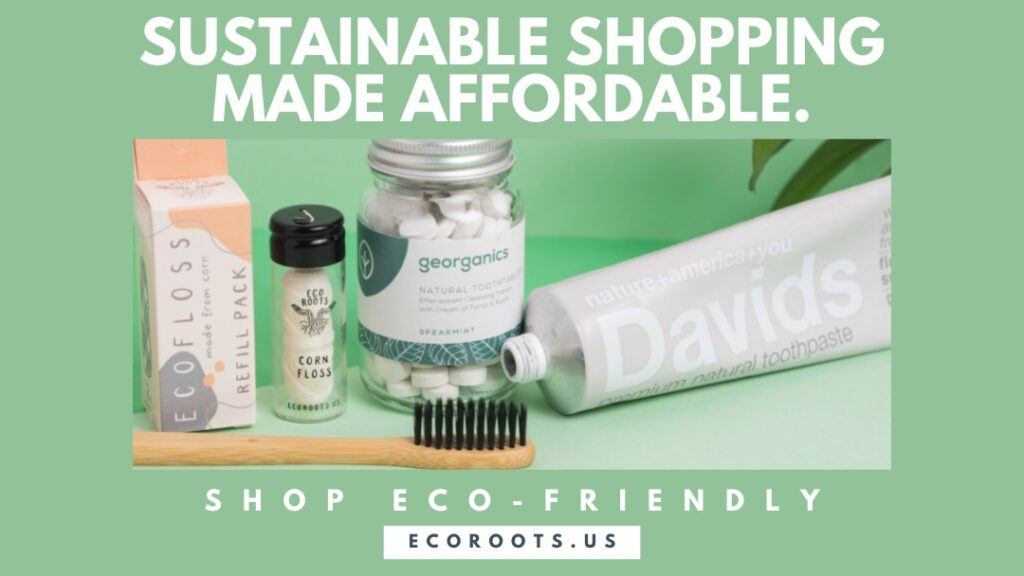
You can purchase all of your sustainable products, natural ingredient cleaners, personal care items and stustainable items here. Check them out with this link.
Thank you for using our links when you buy. We use affiliate links to help support our work at Simply Sustainable Lifestyle.

Here is another good option for purchasing your sustainable products. A new affiliate for Simply Sustainable Lifestyle. Click here to check them out and find your favoite sustainable brands and products.

We always promote Earth Breeze. The best laundry sheets we’ve found.
The mission at Earth Breeze is to have a positive impact. Their Buy One, Give Ten program, where every purchase of Laundry Detergent Eco Sheets donates ten loads of detergent to those in need. All of your purchases make an impact for people and planet. Check out their Impact here.
